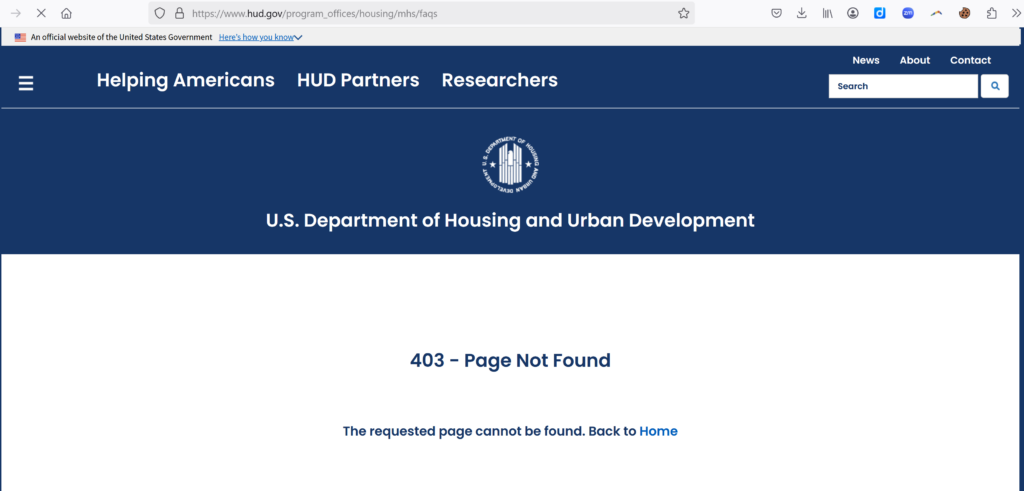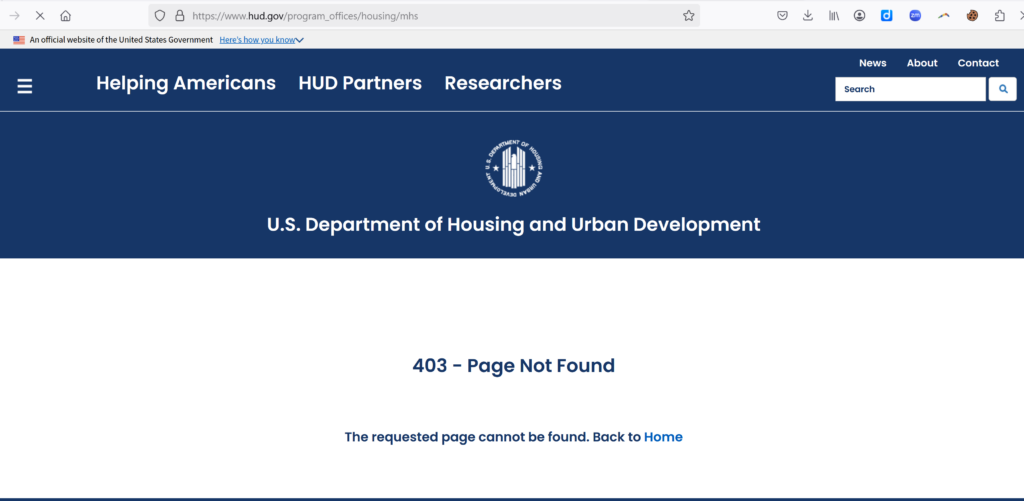Senate bill 785 passed out of the Senate Local Government Committee without amendment and is headed to the Senate floor. There’s an identical bill in the Texas House: HB 1835 scheduled in the Land & Resources Committee on April 10.
Both mandate that any Texas “municipality with zoning regulations or zoning district boundaries”:
(1) shall permit the installation of a new HUD-code
manufactured home for use as a dwelling under at least one:
(A) residential zoning classification; or
(B) type of residential zoning district; and
(2) may not adopt or enforce other zoning regulations
or zoning district boundaries that directly or indirectly prohibit
the installation of new HUD-code manufactured homes in all
residential zoning classifications or types of residential zoning
districts adopted by the municipality.
This isn’t about affordable housing. It’s zone busting step one and I’m shocked that Republicans who allegedly are for less government intrusion would be supportive of this.
In NJ, suburban towns were accused of and sued over “exclusionary zoning” in the 1980’s. Denville, where I lived, was primarily made up of very small lots around lakes… summer cottages that were renovated in the 1950s as year-round homes because they were cheap. Denville was also 13.7% seniors, many on fixed incomes. None of that mattered when the State of NJ decided that the suburbs were exclusionary. Build it and we don’t care what it costs current property taxpayers.
As a result, since the late 1980’s, every NJ municipality is assigned a “fair share” housing quota every 10 years. Municipalities either have to figure out how to do it themselves with tax dollars or builders get what’s called a “builder’s remedy”: 5-6 market value townhouses for every 1 low or moderate unit they build. To hell with zoning, land topography, water resources, traffic, schools, public safety.
These Texas bills are the first step toward those quotas. They don’t mandate quotas, but do mandate that HUD-code housing cannot be prohibited in “all residential zoning classifications or types of residential zoning districts adopted by the municipality”.
That means it can be placed in any residential district in every municipality in Texas and there’s not a thing a municipality can do about it. The problem is that this bill only deals with the building, the HUD-Code house. What exactly, then, is “indirectly” prohibiting the use of these HUD-Code homes? Is the cost of land an “indirect” prohibition?
Affordable Housing Isn’t Just a Building
What happens to municipalities where land is too expensive for a person to acquire the land to put up a HUD-code home? When that happened in NJ and suburban towns didn’t build any low or moderate income housing, the courts, unhappy with the lack of affordable housing, began assigning quotas to every suburban municipality. When municipalities still didn’t build the housing (who could afford to do so), developers were allowed to sue towns for not providing housing commensurate with the quotas. Our town had a plan, but the court didn’t like our plan so the court assigned a “master zoner” to our town. I called those meetings “Thursdays with David” and was at nearly every one. I watched and listened as a court-appointed planner worked with developers who had sued our town to rezone their lands for high density housing…. all in the name of providing affordable housing.
This is how it starts. Let’s assume these bills pass. Yes, I can put a HUD-code manufactured home on a lot in City A. But I can’t afford that lot in City A. So what good does that do me? I want to live in City A. Schools are better. It’s closer to my job. I want to live there for any number of reasons. But I can’t afford to. Next come mandates and quotas.
This is the second bill this session that seems to be rushing through the legislature in the name of affordable housing. Neither one addresses water resources. Neither one addresses municipal service costs. Neither one addresses income qualification or verification for affordable housing. Neither one addresses saleable versus rental housing. (More on that in another blog post.)
Clearly, neither author has thought through the impact and costs. Even though the state Fiscal Notes say there are no costs to either one either at the state level or municipal level. There are costs and if they looked at NJ’s experience, they’d realize that. I really hope these legislators don’t New Jersey my Texas.







